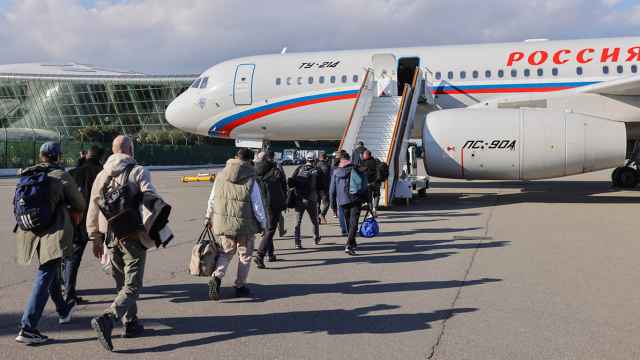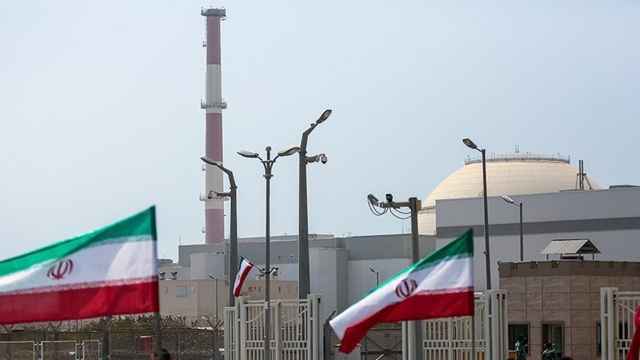The Russian Historical Society has met with authors to listen to their proposals for the creation of a standardized Russian history textbook for secondary schools, a news report said Tuesday.
The Education and Science Ministry is planning to stage a competition in October, with the winner being commissioned to write the textbook, Vedomosti said.
In addition to the textbook, a standard methodology for teaching Russian history to school students will also be determined.
A preliminary list of "difficult" subjects that teachers struggle to teach includes 31 points in time spanning from Ancient Rus to the presidencies of Boris Yeltsin and Vladimir Putin.
The new concept does not mention the Stalinist repressions of the 1930s, and recommends that teachers interpret Stalin's role in the context of "establishing a one-party dictatorship and authoritarian rule."
The document's authors also suggest presenting the leaderships of Nikita Khrushchev and Leonid Brezhnev from the point of view of the reforms undertaken during that period in history.
While Dmitry Medvedev and Vladimir Putin are not specifically mentioned among the controversial subjects, the concept's authors think the current period should be explained as years of "economic and political stabilization."
Yuri Petrov, head of the Institute of Russian History, said the new concept's authors want students to form an "inner conviction" that various events in Russia's history transpired exactly as written.
Sergei Karpov, dean of the history department at Moscow State University, says history teachers should "not be afraid" to present points of view coinciding with Russia's current geopolitical interests.
But political analyst Alexei Makarkin disagrees, citing changeability of geopolitical interests and the principle of teaching Russia's history as part of global history, as supported by Culture Minister Vladimir Medinsky.
The final decision on the new approach to teaching history in Russian schools will be made by the presidium of the Russian Historical Society, which is chaired by the State Duma Speaker Sergei Naryshkin. It will then be submitted to a work group for discussion, before being finalized in the course of the competition.
A Message from The Moscow Times:
Dear readers,
We are facing unprecedented challenges. Russia's Prosecutor General's Office has designated The Moscow Times as an "undesirable" organization, criminalizing our work and putting our staff at risk of prosecution. This follows our earlier unjust labeling as a "foreign agent."
These actions are direct attempts to silence independent journalism in Russia. The authorities claim our work "discredits the decisions of the Russian leadership." We see things differently: we strive to provide accurate, unbiased reporting on Russia.
We, the journalists of The Moscow Times, refuse to be silenced. But to continue our work, we need your help.
Your support, no matter how small, makes a world of difference. If you can, please support us monthly starting from just $2. It's quick to set up, and every contribution makes a significant impact.
By supporting The Moscow Times, you're defending open, independent journalism in the face of repression. Thank you for standing with us.
Remind me later.





